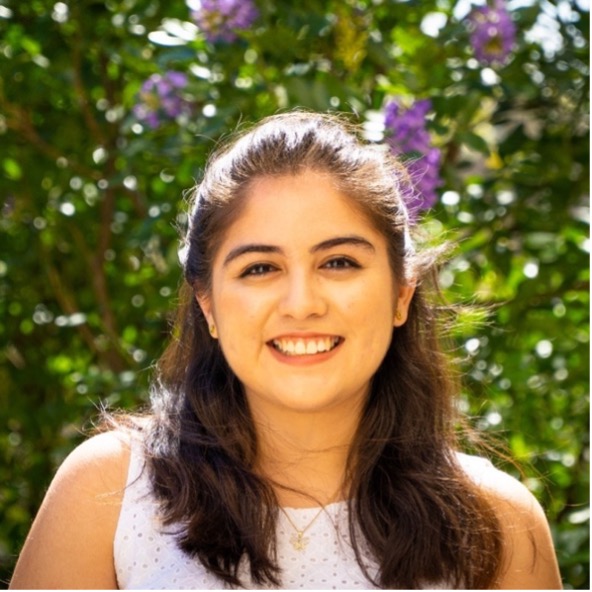Posted on May 6, 2021 by The Graduate School

Ms. Paola Montufar Soria
You’ve got ~ a minute or 350 words to give us your elevator pitch. Who are you? What are you all about?
My name is Paola Montufar Soria, I am a graduating senior in the Honors College majoring in psychology with a minor in biology. I work in Dr. Nicole Wicha’s lab where I’m completing my Honors Thesis examining how Spanish-English bilinguals process multiplication facts with electroencephalography (EEG). In addition, I work with Dr. Guadalupe Carmona and Stanford PhD candidate Rosa Chavez examining teacher sensemaking of testing policies and its impact on classroom decision making. I’m passionate about education equity and science communication, and my overarching career goal is to study how bilingual children learn math, and apply this knowledge to the world of education, both in schools and toys, to make learning easier and more accessible to all children. Upon graduation I will be continuing my academic trajectory at New York University in the Developmental Psychology PhD program. I will be working with Dr. Gigliana Melzi examining the intersection of language and culture in math learning experiences of Latinx children and families.
Some people say follow your passion. Others say work hard, pay attention and your passion will develop. What do you say?
I am big on planning. I have an agenda, a wall calendar, and use Google Calendar a lot. I like to know what is coming and how to prepare for it. In that sense, I would say the best way to go is find your passion, make a plan, and follow it to a T. However, I have found with this approach I lose the serendipitous discoveries that ultimately build a passion. So, I would say allow yourself to explore things you might have never thought you would be interested in. Pay attention around you, learn from and with others. There is a balance I think in being clear about your values and goals but also not being so inflexible you do not allow them to grow and change. That is why I also think it is important to take moments to pause and reflect, ‘Is what I am doing supporting my passion? Have my priorities changed? Have my perspectives and values changed?’ Questions like these have been really helpful for me to think about what I am passionate about and of course, how I would like to make a plan about it.
Work-life balance is a topic that people like to discuss and dispute. Your feelings on this balance?
Coming from a family of overachievers, work-life balance has been a struggle throughout my academic trajectory. On one hand, I feel fortunate to have a job on campus that has been wonderful in accommodating coursework and extracurricular activities. On the other, I do fall in the trap of wanting to always give 110%, wanting to always be available, saying yes to too many things, all while wanting to nurture and care for my relationships with family and friends. I am far from an expert on the topic, but in my experience, what has been the most helpful is setting boundaries. Although we might wish we could get all our to-dos of the day done, some days that is just not possible. There is always more work, but we have to find a stopping point. And that can look different for everyone: lowering the number of daily to-dos, creating more specific and smaller to-dos to celebrate every milestone, not answering emails before or after a certain time, or even building specific times in one’s schedule for meeting friends, or self-care. I think it comes down to being intentional about our time and finding where to draw the line.

